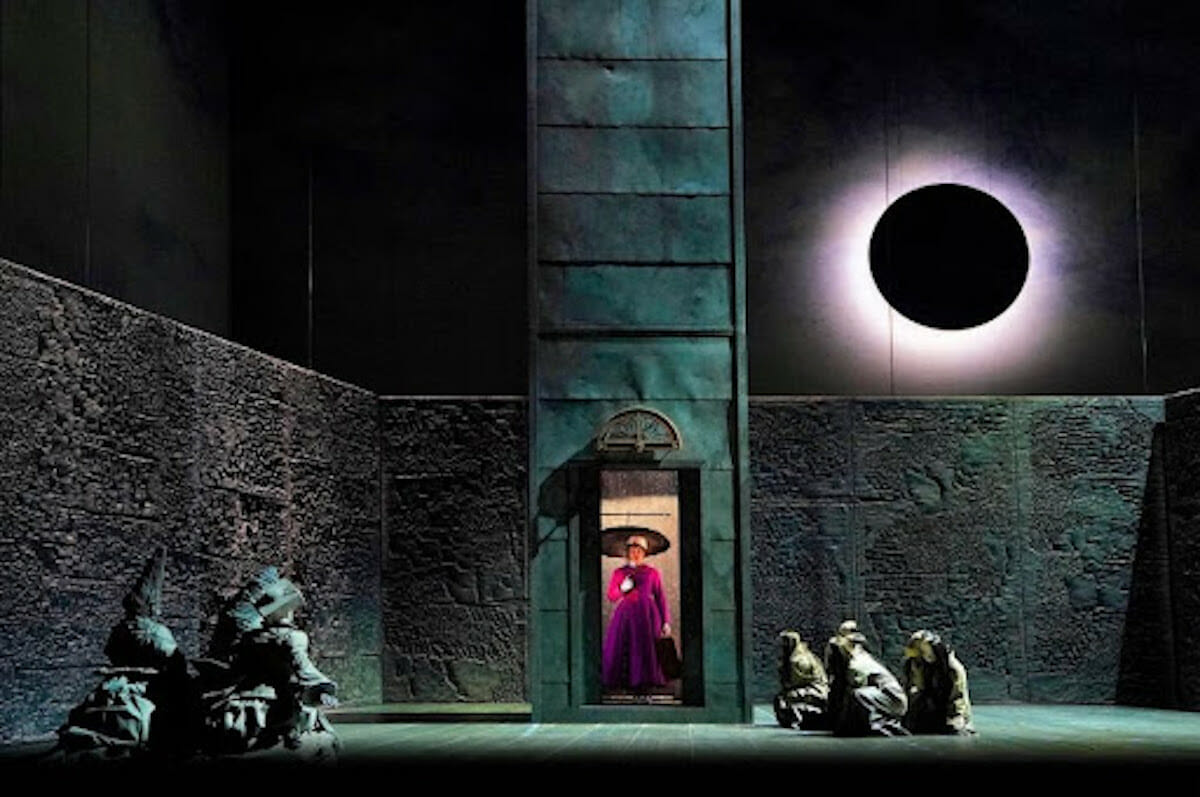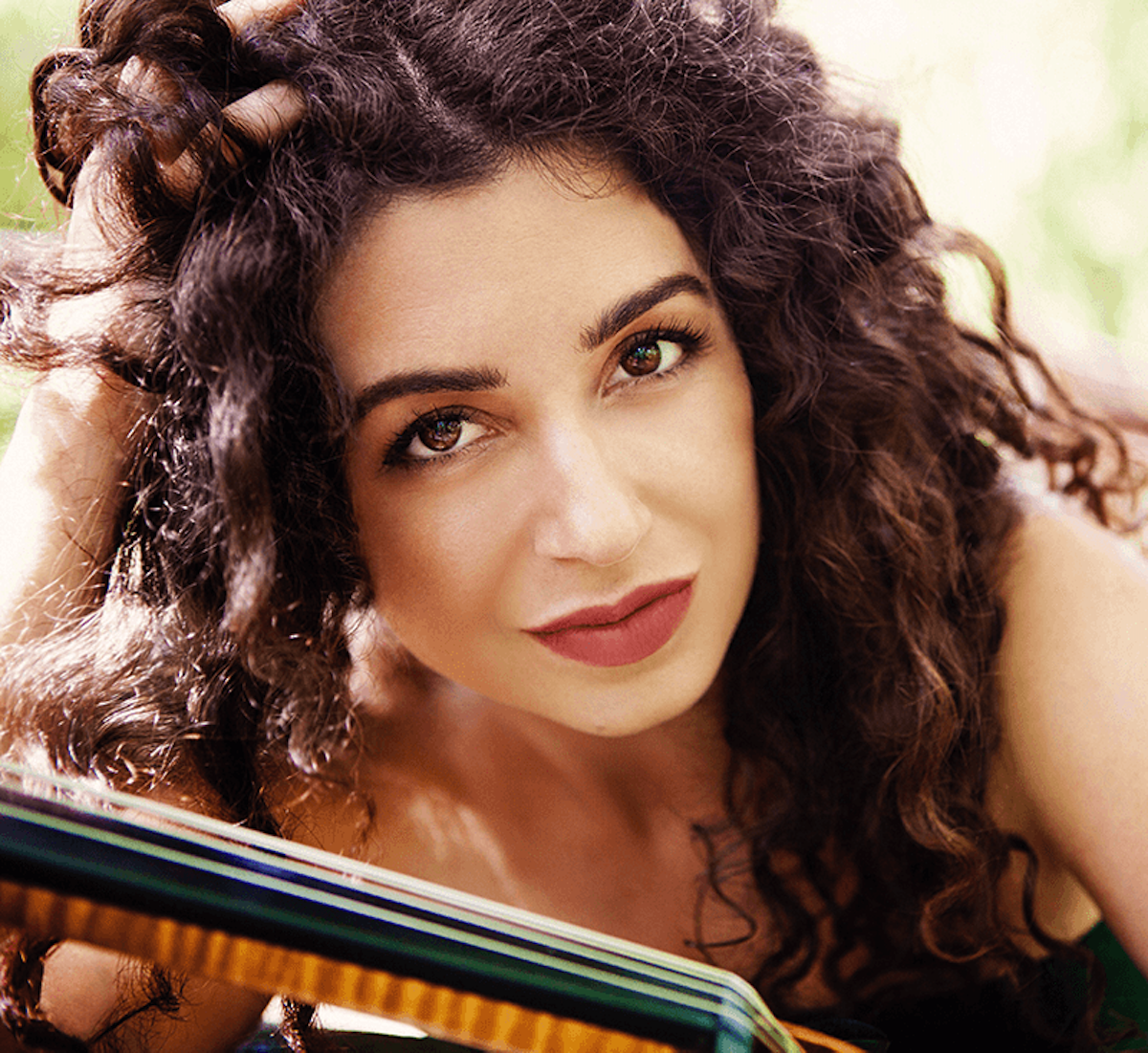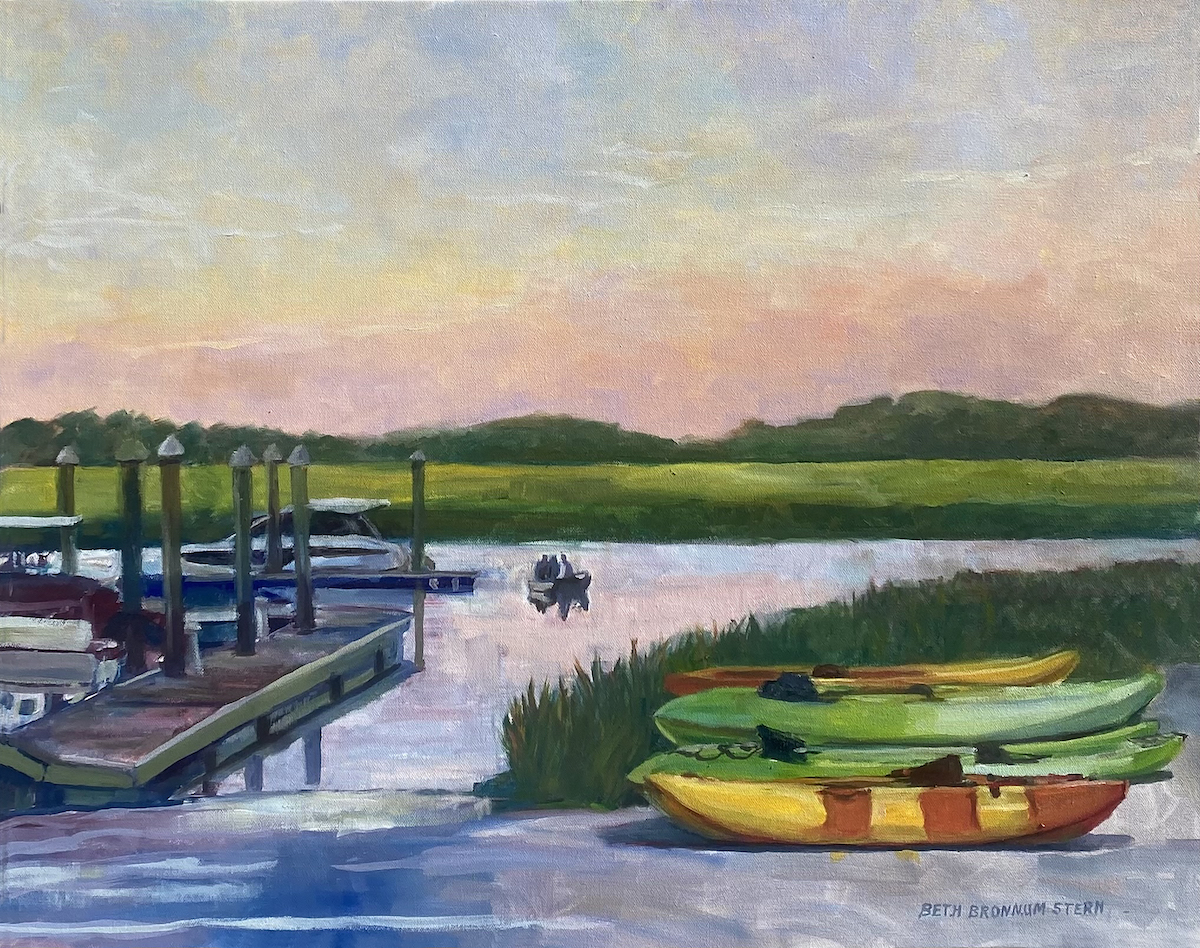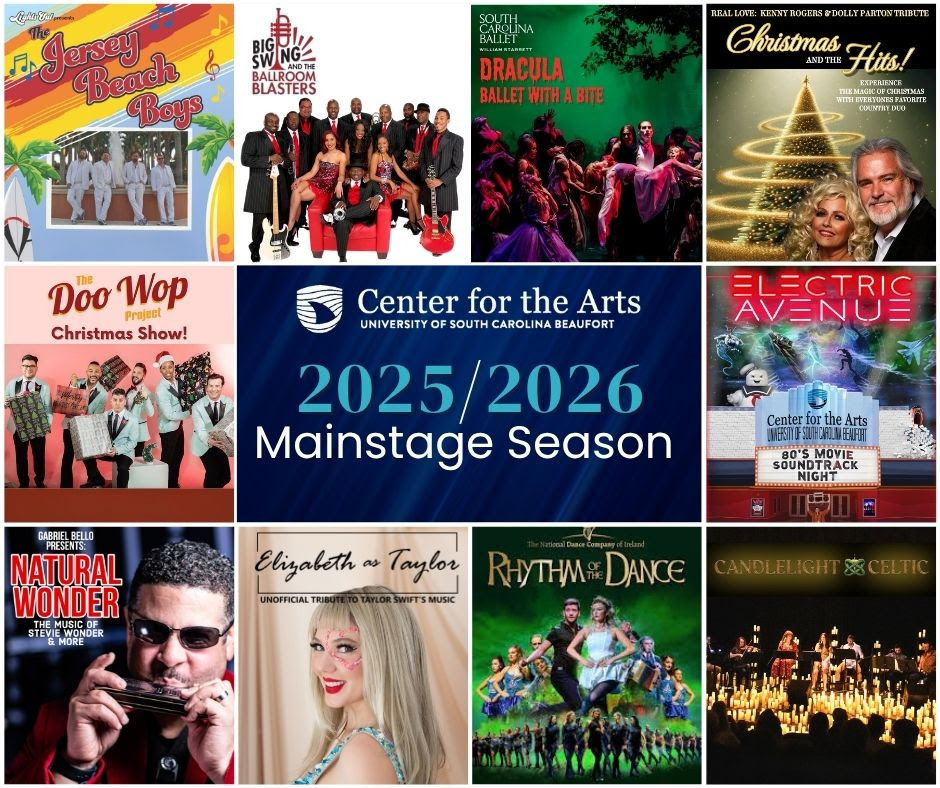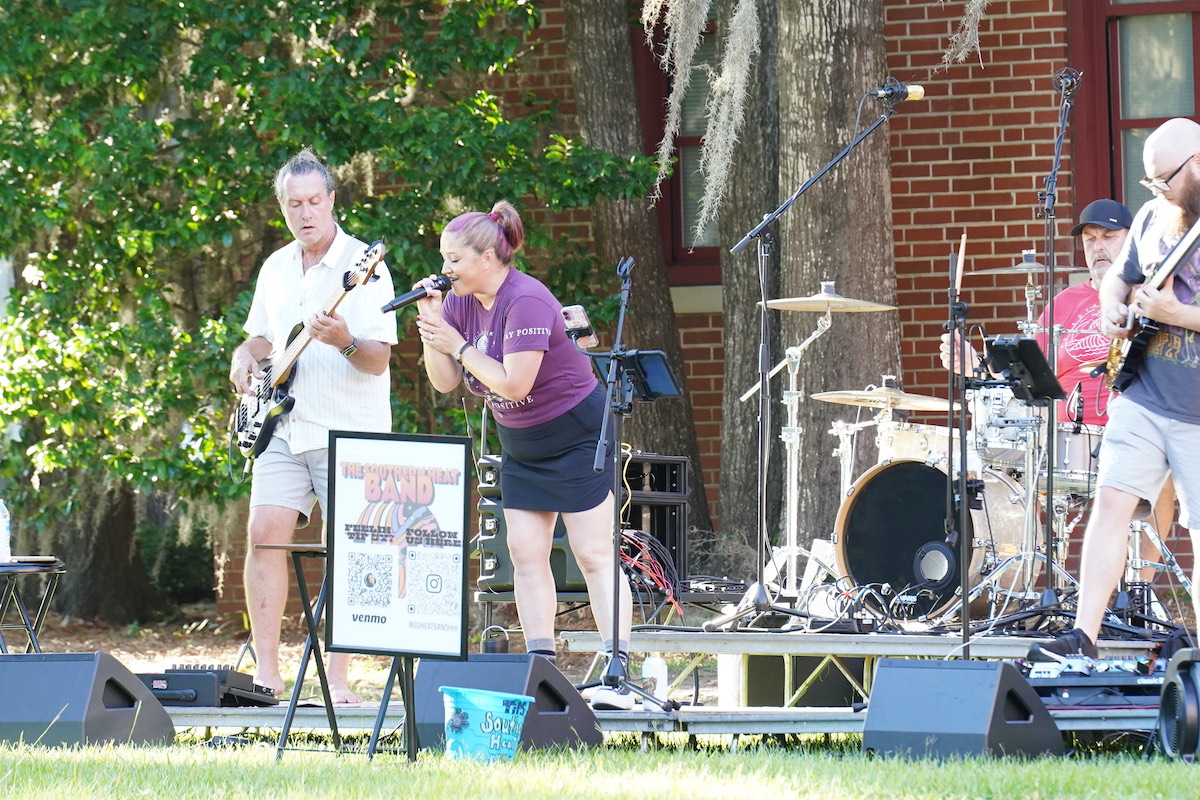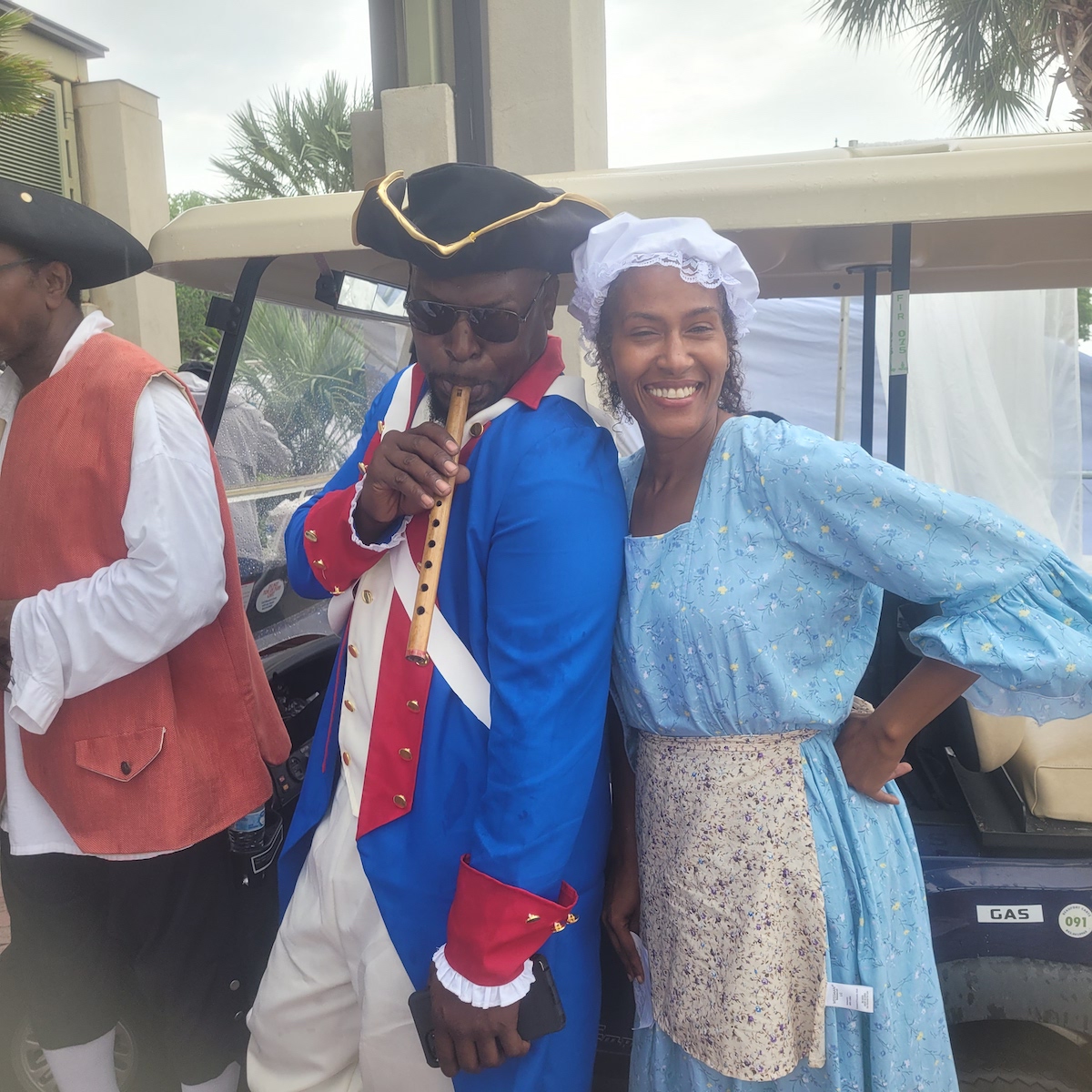By Becky Sprecher
The third opera in the Metropolitan Opera’s Hi-Def Simulcast line-up this season is Eurydice, which will be broadcast live around the world at 1 p.m., Saturday, Dec. 4. You can see it at USC Beaufort’s Center for the Arts at 801 Carteret St.
The story of Orpheus and Eurydice has been around for a long time. A rock star of the classical era, Orpheus allegedly out-sang the deadly Sirens as Jason and the Argonauts sailed by in search of the Golden Fleece. His powers also extended to non-humans as well; rocks, trees and animals were known to fall under his spell.
When his bride (Eurydice) dies and is transported to reside in the underworld, Orpheus mourns her loss. He decides to visit her there, hoping to see her once again. Using his vocal talent to charm the man in charge (Hades), Orpheus negotiates a deal that will allow him to take Eurydice home to the upper world, provided he does not to look back at her as they depart. Sadly, we know he does not succeed in honoring his part of the deal.
This story is a natural for various musical art forms. In fact, the first successful opera as we know it today was L’Orfeo by Claudio Monteverdi in 1607. Then composer Christoph Gluck took a run at it with his Orfeo ed Euridice in 1762, with an American premiere in Charleston, S.C., on June 24, 1794. Joseph Hayden composed his version in 1791, Igor Stravinsky created a ballet based on it and Franz Liszt wrote a symphonic poem about it. In modern times, Broadway staged their version of the Orpheus myth called Hadestown in 2019.
Normally, an opera based on a mythological story like this one has me scrambling for a tee time rather than a ticket. I can’t pronounce any of the names and it brings back memories of struggling to stay awake in my college Classics course, which I passed by the slimmest of margins.
But there are a number of reasons why I’ll be wide awake and in my seat on December 4, and you should be, too, particularly if you are a member of the Millennial Generation.
The first is that the libretto for Eurydice was written by 47-year-old McArthur “genius grant” recipient Sarah Ruhl and based on her 2003 play of the same name. She became interested in talking to people who are no longer with us after the death of her father Patrick when she was just 20 years old. He used to take Sarah and her sister out for a pancake breakfast every Sunday morning and teach them a new word along with its etymology. Look for the scene where she incorporates some of these very words as Eurydice’s dead father re-unites with his daughter and re-acquaints her with this lost childhood vocabulary that she has forgotten.
It’s also time to see a version of this myth from Eurydice’s perspective. In an interview with Opera News Magazine, Ruhl said, “I have often been struck, while reading and watching canonical stories, by how many of them ask us to watch men choose things. They choose war, love, or death. They choose kingdoms, wives, daughters, music, danger, and heroic deeds. The women in the stories are often the chosen or unchosen. I was interested in giving Eurydice some choice in the matter …”
In Ruhl’s version, it is Eurydice who breaks the rules rather than Orpheus, calling out to him as he proceeds ahead of her from the underworld and causing him to turn and look back, sending her to a second death.
Another interesting theme Ruhl explores is the consequences of falling in love with an artist, for whom art is the ultimate mistress. She writes an aria for Eurydice that says:
This is what it is to love an artist:
The moon is always rising above your house.
The houses of your neighbors look dark and dull.
But he is always going away from you.
Inside his head there is always
Something more beautiful.
This is what it is to love an artist …
The second reason to see this opera is the composer Matthew Aucoin (oh-COYNE). At age 31, he is a wunderkind, astonishing his family as a toddler when he conducted imaginary orchestras from his car seat and “composed” a piece he called the Cloud Symphony in his own imaginary notation at the age of 4. As a young adult, he was admitted to observe a rehearsal at the 2011 Spoleto Festival in Charleston where, according to the New York Times, he volunteered to substitute for a sick pianist and wound up being invited back as a performer.
The next year, as a senior at Harvard majoring in English, he went to New York to audition for the Met’s Lindemann Young Artist Program. Forget it, the judges told him; he was already way beyond the program, and he’d suffocate in weeks.
“This kind of talent comes along maybe every half a century,” panelist Ken Noda told the Times. “He had everything—characterization, languages, he played wonderfully, and he had a heightened dramatic sense of how the orchestra is part of the psychological makeup of each character.”
So they brought Aucoin directly on to the Met’s staff as an assistant conductor, working with James Levine and Valery Gergiev.
Aucoin says he enjoys the challenge of writing multiple parts for characters who are at odds with each other. And no matter how fantastical the setting, in the end, he knows that music is about real feelings. He and Ruhl collaborated extensively on this opera, telling the Times, “The words should be tinder waiting to be set afire by the music.”
Thirdly, expect the singers to be great. Erin Morely (Eurydice), a recent winner of the Beverly Sills Artist Award, had her breakthrough moment at the Met when she was called to fill in at the last moment as Sophie in Der Rosenkavelier in the 2013-14 season. And our readers who are working mothers can surely identify with Morely’s challenges in 2018 as she sang in Debussy’s Le Martyre de saint Sébastien in Berlin while 34 weeks pregnant.
Aucoin and Ruhl employ the use of a double for Orpheus. When he is in the real world of life, he sings as a baritone (Joshua Hopkins), but when he is performing and soaring in his art-making mode, the role is sung by a counter tenor (Jakub Józef Orlinski). A counter tenor is a male singer’s voice that lies in the lower range of a female alto voice, and in this case, it adds a sort of “halo” effect that creates a richness and dimension for the character.
Additionally, Ruhl writes parts for three rocks called Big Stone, Little Stone and Loud Stone. “The Stones,” as they quickly became known, act in the manner of a Greek chorus, commenting on the action but unable to influence it.
Together with an Alice in Wonderland-like production by Mary Zimmerman, there are many exciting reasons for all of us to plan on catching this opera. And Millennials will enjoy seeing the whiz kids of generation create and perform. As for me, not only do I want to watch the future of this art form unfold, I hope to redeem myself for snoozing through Classics class all those years ago.
For a full synopsis and production details, visit metopera.org, click Menu/Season/In Cinemas. Sung in English. Run length: 2 hrs. 45 min, plus a 30-min. intermission between Acts II & III. To book tickets visit uscbcenterforthearts.com, click Met, Movies and More. Tickets: $22. OLLI members: $20
Schedule Change Advisory: Cinderella, originally scheduled for Saturday, Jan. 1, will now be aired on Saturday, Jan. 22. See uscbcenterforthearts.com/Met, Movies and More for complete details.


